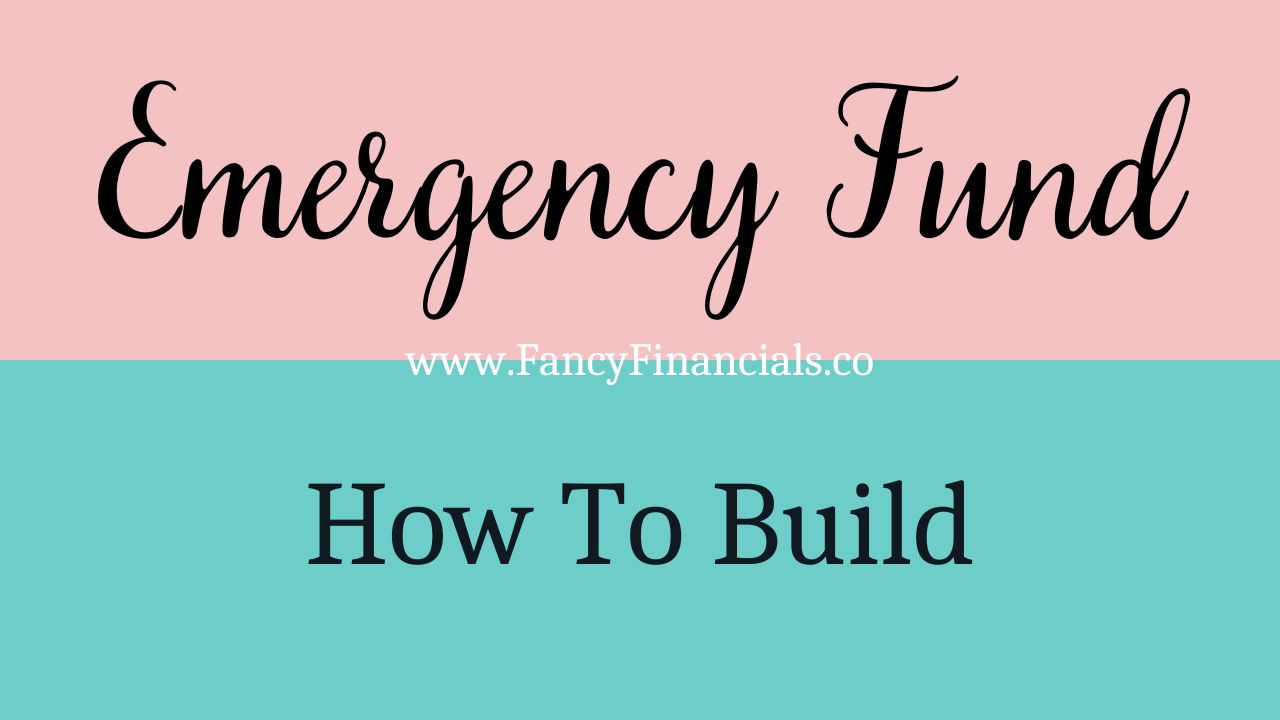What is an Emergency fund and why you should have one? How do I figure out how much I need for an emergency fund? Is $5,000, $10,000 or $20,000 good enough? How Much Should You Be Saving for an Emergency? That depends! But, you can Use an Emergency Fund Calculator to Calculate Your Safety Net! Learn everything you need to know about Emergency Funds: Importance, Benefits, Plus How to start (and build) an emergency fund!
Life is full of surprises, some pleasant and others not so much. One day, everything is running smoothly, and the next, you’re facing an unexpected car repair, a medical emergency, or even a job loss. In these situations, having an emergency fund can be a financial lifesaver. Let’s dive into why an emergency fund is crucial and how you can start building one today.
What is An emergency fund?
An emergency fund is a financial reserve set aside specifically to cover unexpected expenses or financial emergencies. Unlike regular savings, which might be used for planned purchases or investments, an emergency fund is intended to handle unforeseen costs that arise unexpectedly, such as:
- Medical emergencies: Unplanned medical expenses or treatments not covered by insurance.
- Car repairs: Urgent repairs or maintenance needed to keep your vehicle in working condition.
- Home repairs: Unexpected issues with your home, like a broken furnace or a leaking roof.
- Job loss: Providing financial support if you lose your job or face a reduction in income.
- Other emergencies: Any other unforeseen expenses that could disrupt your financial stability.
Key Features of an Emergency Fund:
- Liquidity: The funds should be easily accessible, meaning they should be kept in a savings account or another liquid asset that can be quickly accessed without penalties.
- Separation: It’s beneficial to keep your emergency fund separate from your regular checking or savings accounts to avoid accidentally spending it on non-emergencies.
- Adequacy: The amount should be sufficient to cover essential expenses for a period, typically three to six months, depending on your financial situation and stability.
Having an emergency fund is crucial for maintaining financial stability and reducing stress during challenging times, allowing you to handle unexpected situations without derailing your long-term financial goals.
Why an Emergency Fund is Essential?
- Financial Security and Peace of Mind
- Knowing you have a cushion to fall back on can alleviate stress and provide peace of mind. It means you’re prepared for life’s unexpected twists and turns without needing to rely on credit cards or loans.
- Avoiding Debt
- Without an emergency fund, unexpected expenses often lead to borrowing, which can result in a cycle of debt. Having readily available cash helps you avoid high-interest debt and the financial strain that comes with it.
- Maintaining Financial Stability
- An emergency fund helps maintain your financial stability by ensuring you can cover essential expenses without disrupting your long-term financial goals. Whether it’s continuing to invest, saving for retirement, or achieving other financial milestones, an emergency fund keeps you on track.
How to Build an Emergency Fund:
- Set a Goal
- Financial experts typically recommend saving three to six months’ worth of living expenses. This amount should cover essentials like rent or mortgage, utilities, groceries, and insurance. If your job is less stable, you might aim for six to nine months’ worth of expenses.
- Create a Budget
- Analyze your current spending to identify areas where you can cut back. Redirect these savings into your emergency fund. Every little bit helps, and small changes can add up over time.
- Open a Separate Savings Account
- Keeping your emergency fund separate from your regular checking account can prevent you from dipping into it for non-emergencies. Consider a high-yield savings account to earn more interest on your savings.
- Automate Your Savings
- Set up automatic transfers from your checking account to your emergency fund. This way, you consistently save without having to think about it. Even small, regular contributions can grow your fund significantly over time.
- Prioritize Your Emergency Fund
- Treat building your emergency fund as a top financial priority. Before spending on non-essentials, ensure you’re contributing to your fund. It might mean temporarily foregoing some luxuries, but the security it provides is worth the sacrifice.
- Supplement Your Income
- Look for ways to increase your income. This could be through a side hustle, freelance work, or selling items you no longer need. Direct these additional earnings straight into your emergency fund.
- Reevaluate and Adjust
- Regularly review your emergency fund goal and progress. As your financial situation or expenses change, adjust your savings target and contributions accordingly.
Conclusion
An emergency fund is a cornerstone of financial health, providing a safety net that protects you from unexpected expenses and financial setbacks. By setting a goal, creating a budget, automating your savings, and prioritizing this fund, you can build a robust financial cushion that offers peace of mind and stability. Start today, and you’ll be better prepared for whatever life throws your way.
Don’t Miss A Thing…
Be sure to follow @FancyFinancials on Social Media via Facebook, Instagram, Twitter, Pinterest, LinkedIn, TikTok, and Subscribe on YouTube! Plus, sign up to get the Fancy Financials Newsletter sent straight to your inbox!
About Me:
Hi, if we haven’t officially met I’m Blogging Brandi and this is my Money Blog! I am an ex-corporate Kool-Aid Drinker, Born to be a Blogger, Creator, and Entrepreneur. I also LOVE my dogs and RV a lot! Plus, I have a background in Accounting, Investments, and a Finance Degree! So, I kinda, maybe, sorta, might know a thing about money! Check out the About Page for all the details! 😉
P.S. Got Questions? I’ve got answers reach out via [email protected] (or using the form on my Contact Page).
Affiliate Disclaimer: Note this description contains affiliate links that allow you to find the items mentioned and support me at no cost to you. While I may earn minimal sums when the viewer uses the links, the viewer is in no way obligated to use these links. Thank you for your support!
Related:
- Emergency Funds: Importance, Benefits, and How to Build One
- How to start (and build) an emergency fund
- How Much Should You Be Saving for an Emergency?
- Emergency fund: What it is and why you should have one
- (How do I figure out how much I need for an emergency fund?) Emergency Fund Calculator: Calculate Your Safety Net

Hi, if we haven’t officially met I’m Blogging Brandi and this is my Money Blog! I am an ex-corporate Kool-Aid Drinker, Born to be a Blogger, Creator, and Entrepreneur. I also LOVE my dogs and RV a lot! Plus, I have a background in Accounting, Investments, and a Finance Degree! So, I kinda, maybe, sorta, might know a thing about money! Check out the About Page for all the details! 😉

